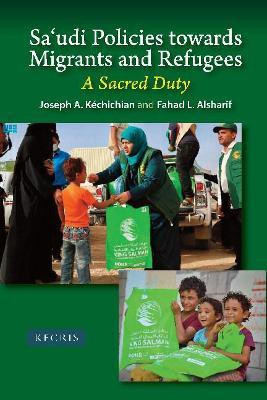Sa'udi Policies towards Migrants and Refugees(English, Hardcover, Kechichian Joseph A.)
Quick Overview
Product Price Comparison
A Sacred Duty sets out the Kingdom's policy toward the global issue of migrants and refugees, with special emphasis directed toward Muslim societies. Discussion focuses on refugee communities currently living in Saudi Arabia, some of which migrated due to war, forced displacement, environmental catastrophe, and economic hardship. Some migrants have come from bordering countries such as Iraq and Yemen; others reached the Arabian Peninsula from Africa and Asia. All have been welcomed and cared for, though settlement conditions, repatriation and deportation circumstances were not always ideal. Inevitably, and mirroring experience elsewhere in the world, there are undeniable gulfs between policies and practices. Policy shortcomings are measured against the substantive assistance planks that Riyadh espouses, including providing financial aid to refugees in third countries, over and above United Nations appeals. These acts are done without prejudice and mostly without publicity. Aid to the needy is justified by religious obligations, as well as on humanitarian grounds. Saudi Arabia's aid contributions have generally been either overlooked or dismissed, and the religious foundations of their commitment to displaced populations has been negatively contrasted against human-rights based commitments espoused by Western states and institutions. Sa'udi Policies Towards Migrants and Refugees addresses these concerns, filling a key gap in the literature on a vital policy topic. The book refutes notions that the country discourages open research on sensitive topics and further dispels the prejudiced idea of a society closed to any kind of external influence. Saudi Arabia's granting of hospitality to refugees reinforces historic, tribal and universal norms in contrast to misplaced notions of hostility toward Western standards, which in the case of migrants and refugees has seen the application of confused and alarming standards of behaviour by a plethora of Western states. Published in conjunction with the King Faisal Center for Research and Islamic Studies (KFCRIS).


